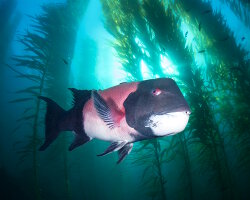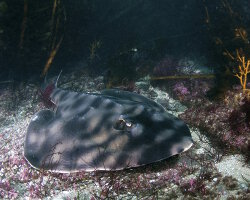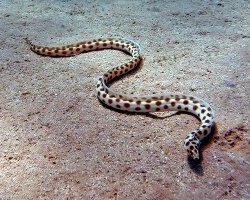Sealife guideThe chocolate chip sea cucumberIsostichopus badionotus
Last updated on 09/03/2025 at 11:25 PM
Taxonomy
- Common name: Chocolate chip sea cucumber, three-rowed sea cucumber, cookie dough sea cucumber
- French name: Concombre de mer cookie
- Spanish name: Pepino de mar
- Scientific name: Isostichopus badionotus (Selenka, 1867)
- Family name: Stichopodidae
- Order name: Aspidochirotes
- Class name: Holothuroidea
Description
The chocolate chip sea cucumber has a massive cylindrical body that is beige in color, covered with a set of dark brown pustules resembling chocolate chips that protrude slightly from the surface, giving it a resemblance to a cookie, hence its french name. It can reach a length of about 12 inches when fully grown
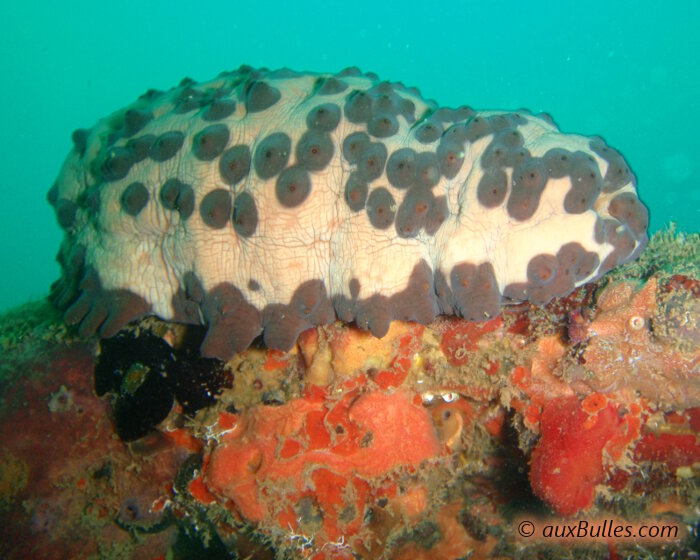
A chocolate chip sea cucumber on the side of a shipwreck
Geographic range
The chocolate chip sea cucumber is primarily found in the tropical waters of the western Atlantic Ocean, particularly in the Caribbean Sea and the Gulf of Mexico. It is commonly found in the reefs around many Caribbean islands, such as
Guadeloupe, Martinique, Saint Martin, the Virgin Islands, and many others.
Habitat
The chocolate chip sea cucumber lives on the seafloor in shallow waters of coral reefs and seagrass beds, reaching depths of up to 180 feet. Its distinctive coloration provides effective camouflage in the rocky and sandy substrates of its habitat.
Diet
Through its bioturbation, it helps oxygenate the substrate, promoting the health of benthic ecosystems. This process of organic matter breakdown makes nutrients more accessible to other marine organisms.
Additionally, the chocolate chip sea cucumber serves as a food source for various predators, including fish and invertebrates.
Reproduction
The chocolate chip sea cucumber reproduces via external fertilization, where individuals release sperm and eggs into the water column. After fertilization, the larvae undergo a planktonic phase before settling on the seafloor and transforming into juveniles.
Did you know ?
As a detritivore, the chocolate chip sea cucumber absorbs and stores toxic substances. Studies conducted in Venezuela and the Yucatán Peninsula in Mexico have shown that this species accumulates high levels of metals such as copper, nickel, lead and zinc.

The chocolate chip sea cucumber (Isostichopus badionotus)
The chocolate chip sea cucumber is listed as many other marine species within The
IUCN Red List of threatened species. The chocolate chip sea cucumber appears in the
IUCN Red List since 2013 within the category Least Concern !
Within the same family
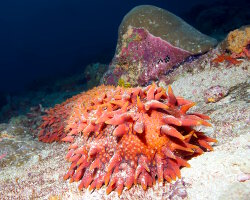
Pineapple sea cucumber
(Thelenota ananas)
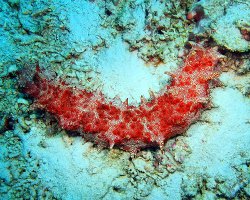
Red striped sea cucumber
(Thelenota rubralineata)
Discover also
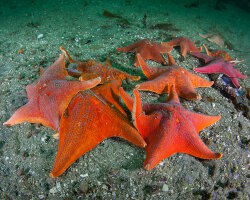
Bat sea star
(Patiria miniata)

Chocolate chip sea star
(Nidorellia armata)
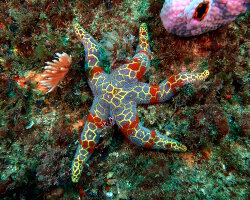
Mosaic sea star
(Plectaster decanus)
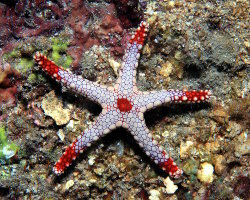
Necklace sea star
(Fromia monilis)
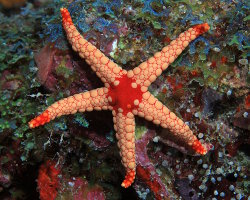
Noduled sea star
(Fromia nodosa)
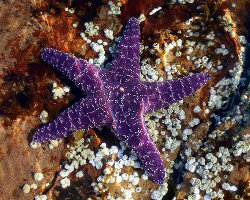
Purple sea star
(Pisaster ochraceus)
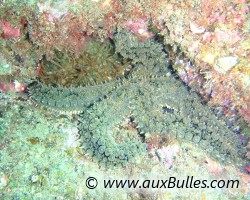
Spiny starfish
(Marthasterias glacialis)

Vermillion sea star
(Mediaster aequalis)
The marine species from Caribbean sea
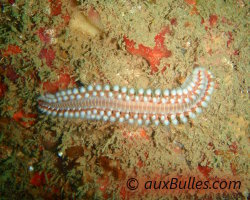
Bearded fireworm
(Hermodice carunculata)

Foureye butterflyfish
(Chaetodon capistratus)
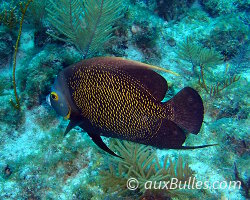
French angelfish
(Pomacanthus paru)
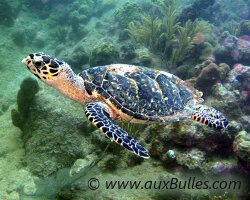
Hawksbill sea turtle
(Eretmochelys imbricata)

Honeycomb cowfish
(Acanthostracion polygonium)

Redband parrotfish
(Sparisoma aurofrenatum)

Sand tilefish
(Malacanthus plumieri)
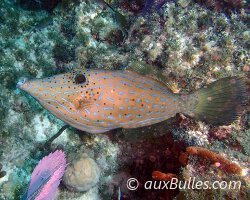
Scrawled filefish
(Aluterus scriptus)
Dive centers
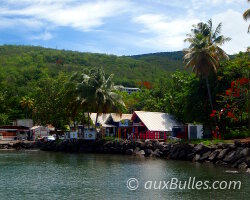
'Les Ilets' dive center
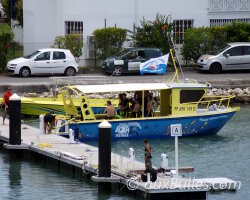
Noa dive center
























